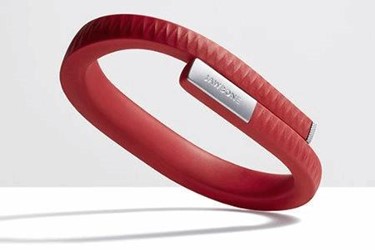Jawbone Pivoting Into Medical-Grade Devices And Services
By Jof Enriquez,
Follow me on Twitter @jofenriq

Wearables company Jawbone reportedly is planning to shift from selling fitness trackers geared towards consumers to developing medical-grade devices and accompanying software services.
Jawbone is talking to current and potentially new strategic investors in the wider medical sector, trying to raise additional funds in order to focus on "a high-margin business to business to consumer model: a health product and accompanying set of services sold primarily to clinicians and health providers working with patients," reports TechCrunch.
The web site reports that Jawbone has raised $951 million, to date, from notable investors like Andreessen Horowitz, Sequoia, Kleiner Perkins, JP Morgan, Mayfield, and Khosla, but has "burned through most (if not all) of that, with very little to show in returns."
In addition, Jawbone presently is mired in dire financial straits and has taken flak over poor customer service support for its wrist-worn Jawbone fitness bands. Also, it is locked in legal wrangling with arch-nemesis Fitbit for alleged patent infringement. Lukewarm market response to wearables has both companies rethinking their strategy to survive long-term.
Jawbone last year was rumored to have been developing and launching a medical device, which failed to appear, according to Ars Technica.
“There are a lot of things to learn about the interactions between health wellness and consumer electronics,” one source told TechCrunch. He added that consumer hardware is just too challenging, except for the very biggest companies.
Fitbit realized that even with a head start on its competitor, it had to partner with medical device manufacturer Medtronic last year to develop an app, called MyLog, that tracks activity and glucose levels automatically. Fitbit CEO James Park said that medical wearables are the “logical next step” for the company, a move that rival Jawbone is trying to follow.
Jawbone, whose last funding round netted $165 million a year ago, needs to secure its most crucial funding yet. Two sources told TechCrunch that the funding round is "at an advanced stage" but has not closed.
By the year 2020, the smart wearables market is estimated to reach $41 billion, according to a 2014 report by Soreon Research. Top tech companies — such as Apple, Samsung, Microsoft, and Google — are "aggressively attacking the health-and-wellness market to capture consumers and are aggressively moving into the clinical setting, tightening the hold of devices and operating systems," says PwC's Brian Williams.
However, a 2016 forecast from eMarketer has downgraded actual consumer usage of wearables from 60 percent to 24.7 percent. Medical-grade wearables could catch on eventually, and companies like Fitbit and Jawbone could forge more deals and raise funds to pivot successfully.
They need to please regulatory bodies, though, who are "going to better define for consumers those devices that are intended for fitness/wellness versus those that are medical grade," according to an MDO column. For instance, FDA may be leaning toward deregulating mobile medical apps, but is laying down strict rules stemming from cybersecurity threats to devices and wearables connected to the Internet of Things (IoT).
